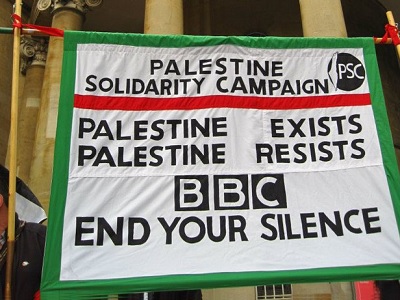
By Richard Falk
When BBC Calls, Should you Answer?
That is, don’t expect love, if you are a certified critic of Israeli policies and practices, and prepare yourself for rejection.
The siren lure of big time media is partly a romancing of the ego, partly a rare moment to intrude a moment or two of truthfulness into the endless spinning of the Israel’s narrative that stresses its extravagantly humane response to Hamas flurries of rockets and alleged human shield tactics.
Four times in the past week I have received invitations to be a guest on BBC programs dealing with Israel’s military operations in Gaza. Each time the female producer, with charming British intonation, expressed her strong interest in arranging my participation at such and such a time. And each time I agreed, although my presence in a Turkish village with limited Internet access made it logistically awkward to do so, yet far from impossible to make the necessary arrangements, usually with the kind cooperation of a neighbor with superior digital facilities.
Each time I was ready at the appointed hour, and each time I was given a last minute explanation for why my appearance was cancelled—a couple of times I was told that I was a casualty of ‘breaking news,’ and the other two times, there was no embellishment, merely “we apologize, but we have to cancel today’s appearance.” And on each occasion, as if part of how producers are trained, I was told that those in charge of planning the program were eager to have me appear as soon as possible, and that I would hear in a day or so. On the basis of my past experience on the few occasions when such last minute news altered programming, I was shifted to later in the program or rescheduled for the next day. My BBC experience in this respect was ‘terminal’ as in disease.
Needless to say, the phone lines have been quiet since each of these ‘dumping’ incidents. I wonder about this pattern of invitation and cancellation. I am quite sure that these was quite separate programming for each of the invitations with no coordination among them. Was there some master censor at the BBC that reviewed the guest list just prior to the scheduled broadcast, somewhat in the manner that an ethical submarine commander might review the manifest of an enemy passenger ship wartime? Perhaps, BBC was rightly concerned that there might be a faint and ugly stain of balance that would tarnish their unsullied reputation of pro-Israeli partisanship. I will probably be forever reliant on such conjectures unless a BBC Snowden steps out of the shadows of deception and into the sunlight of disclosure.
I feel self-conscious relating this little saga at a time when so many in Gaza are dying and bleeding, and all of us should be grieving. As I write I feel humble, not arrogant. It seems that somewhere buried in these trivial rejections there is occasion for concern that the media claim of objectivity in liberal societies is above all else a sham. That even powerful players such as BBC are secretly captive, and its reportage and commentary qualifies less as news than as Hasbara, at least when it comes to Israel-Palestine.
In any event, my advice to the media savvy, is that if you have caller ID, and you can tell that it is BBC calling, don’t bother answering. I hope I have the good sense to follow my own advice should the phone ever ring again!
But I am not even sure I should prolong such childish pique! How can we turn our backs on the opportunity, however slim, to weigh in for a minute or two on the side of those being so cruelly victimized? So more soberly considered, I hope that I will have the maturity to answer the BBC call, and even keep showing up however many times I am brushed off at the last minute. By the way, I have yet to be put to the test. Maybe in the interval BBC staffers have been handed a blacklist to avoid the slight tremors of embarrassment associated with last minute cancellations. I am not vain enough to suppose that my earlier post was passed around as a negative guideline on how to avoid inviting the wrong people to appear on news programs dealing with the Middle East.
– Richard Falk is an international law and international relations scholar who taught at Princeton University for forty years. In 2008 he was also appointed by the UN to serve a six-year term as the Special Rapporteur on Palestinian human rights. (This piece was originally posted at Richard Falk’s blog Citizen Pilgrimage.)




